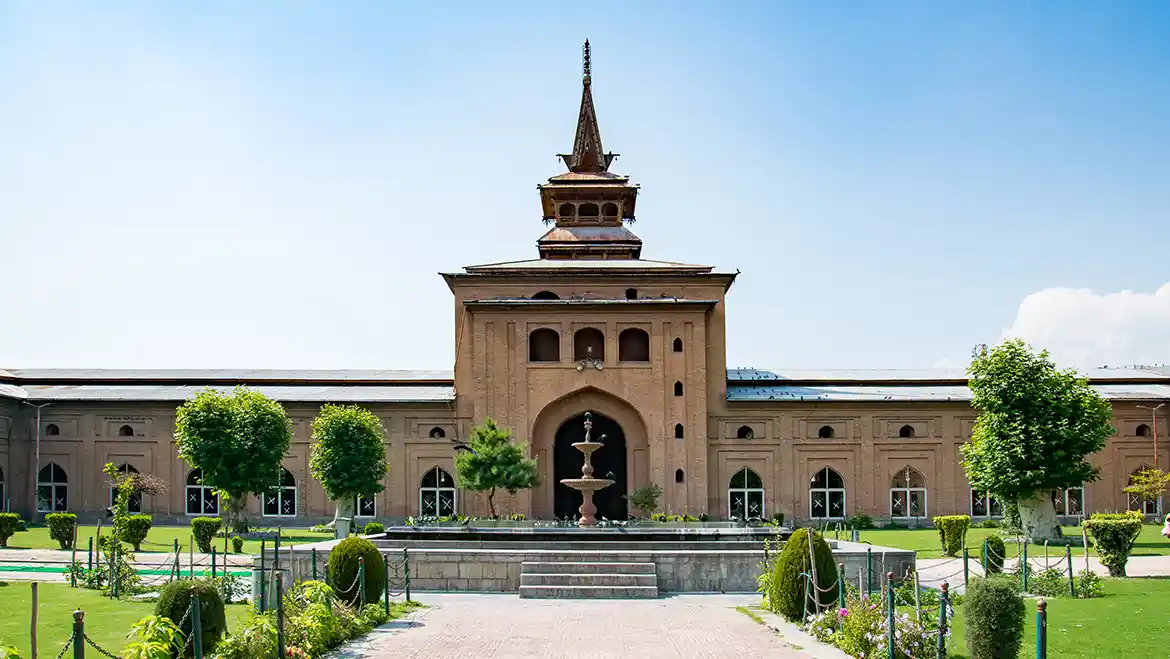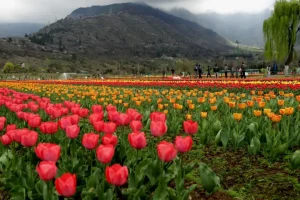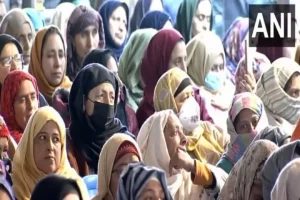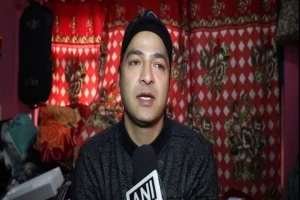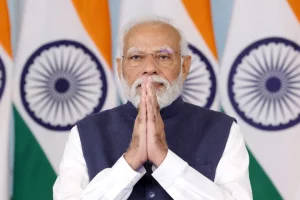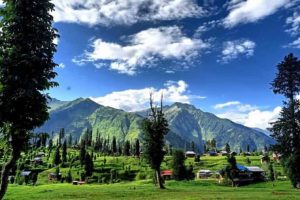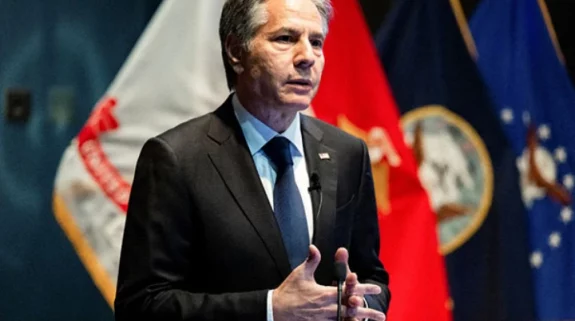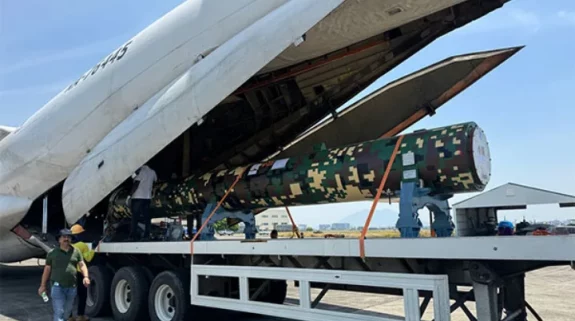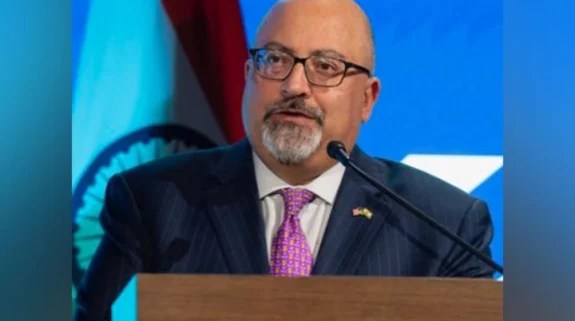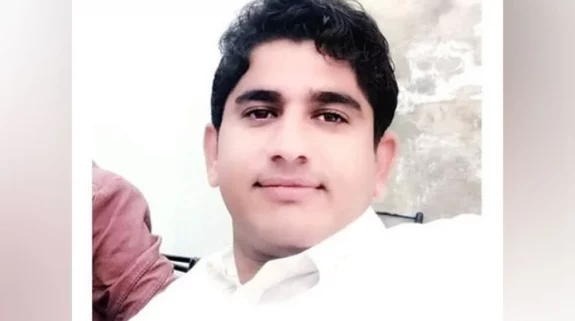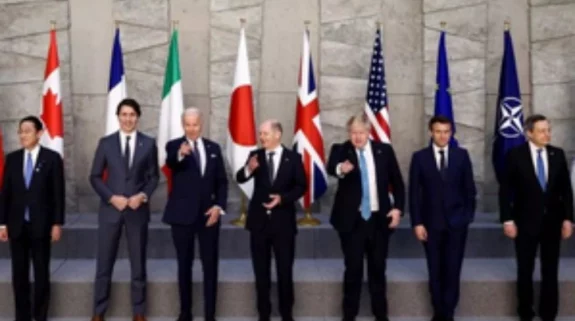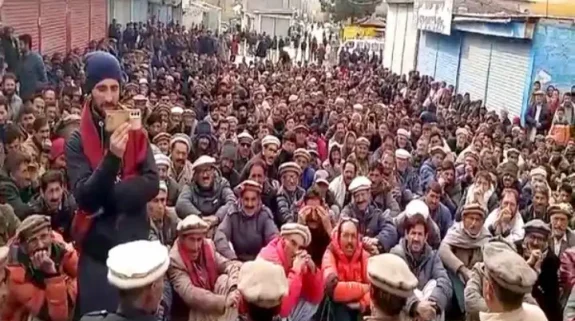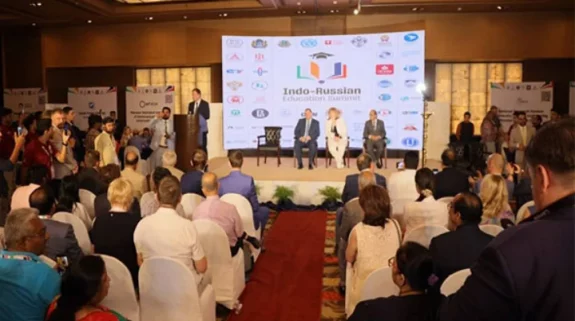Failing to trigger a cycle of violence on the pattern of the 2010 and 2016 street turbulence in Kashmir after abrogation of Article 370, the separatist operatives made an organised attempt at Srinagar’s Jamia Masjid in the holy month of fasting in April. It, however, failed as the mosque’s management volunteers forced the saboteurs out and helped the Police to identify, arrest and book them for the criminal offence.
During the investigation, Srinagar District Police seized smartphones of some saboteurs and retrieved their data that suggested not only their free access to the alleged killers of a Police officer but also their contact through smartphones with their handlers in Pakistan. “There was an organised plan of sabotage of peace and clear instructions to the local saboteurs to create a fresh season of violence from Jamia Masjid”, SSP Srinagar, Rakesh Balwal, disclosed to India Narrative.
“We have booked the saboteurs and gathered technical evidence of their links to Pakistan through some under-trial prisoners. We have retrieved important data from their phones which they managed to smuggle into a high security jail”, the SSP said. “When the mosque opened for mass prayers after 7 months of lockdown on 4 March (2022), the saboteurs received desperate instructions to trigger violence. They planned to start it on the first Friday of Ramazan on 8 April”.
“Pehla jumma hai, achha mauka hai, logon ko bhadkana hai” (It is the first Friday, it is a good opportunity to instigate the people), was the instruction from across the border. However, the plan failed as the participants of the congregational prayers did not respond to the saboteurs favourably.
“There were thousands of devout Muslims in the congregational prayers. Immediately after the Zohar session concluded, some 20 youths began shouting slogans for azadi. The Police didn’t interfere. The Jamia Masjid Intezamia Committee volunteers forced them to move out. Some were even beaten up. Later, we registered FIR, got the saboteurs identified, arrested and detained”, the SSP added.
“In all we arrested 17 persons. Seven of them, who had entered the mosque with a Pakistani flag and an organised plan to disrupt the prayers, were booked under Public Safety Act. Some of them were in touch with the alleged killers of the slain Deputy SP Mohammad Ayyub Pandit in Srinagar Central Jail who received instructions from their handlers in Pakistan to start a fresh spell of violence”, he said.
This, according to SSP Srinagar, forced the authorities to disallow the Friday afternoon prayers including the holy month’s most important Shab-e-Qadr and Jumat-ul-Vida prayers on 29 April. However the authorities granted permission to the Eid-ul-Fitr congregational prayers if they could advance the same to 7.30 a.m. The committee did not agree. When the authorities sought an undertaking from the committee that there would be no violence, the members expressed helplessness. Consequently, there were no Eid-ul-Fitr congregational prayers at Jamia Masjid.
Well-placed sources privy to the investigation revealed that the detained slogan shouters included four persons from South Kashmir—two each from Shopian and Pulwama districts. One Omar Chhotu played a key role in the whole plan.
“They had remained in touch with DSP Pandit’s killers in Srinagar Central Jail since long. They also managed to smuggle in their smartphone. On one phone, the under-trial prisoners exchanged messages with their handlers in Pakistan. There were strict instructions to start a fresh turbulence. We found one handler’s IP address in Pakistan”, said a source. “They thought that the Police would enter the mosque upon hearing the slogans. They had the plan of attacking the Police so as to force it to open fire and generate violence”.
According to the source, one instruction said: “This is the last opportunity to trigger violence. It’s now or never”. “But fortunately the attendants of the mass prayers and the Intezamia Committee not only forced the gang out but also cooperated with the Police in identification and detention of the saboteurs' '. He claimed that at least one Pakistani flag and some other incriminating material was recovered and seized.
Consequent upon this development, there were no congregational prayers at Jamia Masjid on the second, third and the last Friday as also on the Eid-ul-Fitr on 3 May.
On occasion of Eid-ul-Fitr and Eid-ul-Azha, the largest congregational prayers in Jammu and Kashmir are held at the expansive Eidgah Grounds in Srinagar. However, traditionally the biggest congregation of Jumat-ul-Vida happens at Jamia Masjid. On other key festivals of the Islamic calendar, majority of the devout Muslims gather at the revered Hazratbal shrine in Srinagar.
The National Conference founder Sheikh Mohammad Abdullah and his family and party have retained control over the administration of Wakf at Hazratbal for several decades. In 2003, Mufti Mohammad Sayeed’s PDP-Congress coalition amended the laws to bring Wakf directly under the State government’s control. Even after that Farooq Abdullah continued to attend prayers and influence the management on important occasions at Hazratbal.
The Awami Action Committee leader, Mirwaiz Maulvi Mohammad Farooq, established his seat of power at Jamia Masjid. Mirwaiz delivers the sermon at the Friday afternoon prayers which are conducted by a different Imam. Mirwaiz Farooq was assassinated in a terrorist attack at his home on 21 May 1990. His successor-son Mirwaiz Umar Farooq took control of the Jamia Masjid Wakf administration when he was 18-year-old. In 1993, he was appointed as the separatist Hurriyat Conference’s first chairman. After August 2019, Mirwaiz Jr. has been under ‘house arrest’.
Due to the separatist political demonstrations, stone pelting and waving of ISIS flags on several occasions, the congregational prayers at Jamia Masjid have remained disrupted particularly after 2016. Dy SP Mohammad Ayyub Pandit, who was posted as incharge of Mirwaiz Umar’s security, was lynched to death by a mob during Shab-e-Qadr mass prayers on 22 June 2017.
On 2 June 2018, a violent mob of over 200 stone pelters attacked a CRPF Gypsy in close vicinity of Jamia Masjid. One of the attackers was killed as he came under the vehicle. However the driver managed to drive away and save the deputy commandant and four other personnel.
On another occasion, one shopkeeper’s head was smashed with a stick by the mobsters for refusing to close his shop on the day of Hurriyat-sponsored hartal. He later died at a hospital.
For security reasons, mass prayers were not allowed at Jamia Masjid from 5 August 2019 to 18 December 2019 when Mirwaiz Umar was under house arrest. Due to the Covid Pandemic after March 2020, the mosque remained closed for different periods. It was opened for mass prayers after 7 months of lockdown on 4 March 2022.
Also Read: Sujwan encounter may signal Pak intent to revive terror in Jammu
Modi's big move to built confidence among Kashmiri muslims posting Shah Faesal in top security body






